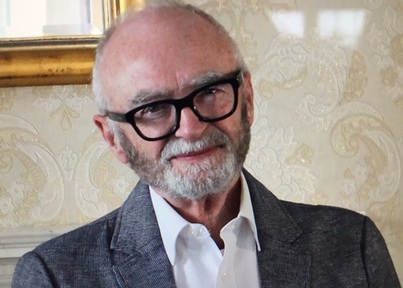Government advised to reconsider the term 'Integrated Review' for new two year olds' progress check
 The report on a pilot integrating the Early Years Foundation Stage (EYFS) Progress Check with the Healthy Child Programme (HCP) health and development review has recommended the ‘integrated review’ is renamed to avoid confusion about how checks can be carried out.
The report on a pilot integrating the Early Years Foundation Stage (EYFS) Progress Check with the Healthy Child Programme (HCP) health and development review has recommended the ‘integrated review’ is renamed to avoid confusion about how checks can be carried out.
The Early Years Foundation Stage (EYFS) sets the standards for development, learning and care of children from birth to the age of five. The EYFS Progress Check at age two is a short written summary of a child’s development when they are between 24 months and 36 months old carried out by early years professionals.
The HCP 2-2½ year health and development review similarly looks into the learning, social skills and speech and language skills of children between the ages of 24 months and 30 months and is carried out by health professionals.
The move to integrate the progress checks was announced at the end of 2014 and will be introduced in September 2015. At the time the report on the pilot study was published, Health Minister Dr Dan Poulter said: “This report shows that integrating health and early years reviews is better for children and their parents – giving a more complete picture of their child’s development and supporting children to the best start in life.”
A pilot study was launched in 2011, when the Government committed to look into ways of integrating the progress checks in a bid to reduce duplication of information on children and clarify information for parents.
Integration issues
However the pilot has suggested the progress check should not be described as an ‘integrated review’ as it is not a necessary requirement for both a health worker and an early years professional to be present during the review.
The pilot followed the five areas of Norfolk, Northamptonshire, Medway, Leeds and Islington and measured how they developed and carried out their integrated approach to combined progress checks which identify a child’s health and well-being, learning and behaviour and arrange support for families with children where progress has been less than expected.
Although it has not been made mandatory that a health worker and early years professional are both present, the pilot found progress checks carried out by two lead professionals provided the best outcomes, and having a health visitor attend made it a ‘valuable’ exercise. The report stated: “Involvement of experienced health visitors, rather than solely nursery nurses within health visiting teams, was important for accurate clinical judgements. Early years staff were not always able to make accurate judgements on health elements. Involving experienced staff from both health and early years seems essential.” 
Training required
Extra training for nursery staff was found to be needed for successful integrated reviews to be carried out where a health professional was not also present. This is because practitioners will be carrying out a new professional aspect within their roles with a lack of training or experience in health issues.
Nursery workers were found to be essential for having a strong understanding of each child, with one team leader at a pilot site saying: “The worker needs to know about childhood development, and have a good understanding of where a child should be at two, so nursery workers and family support workers are well qualified to do that.”
Concerns about the integrated review have been raised by nursery owner David Wright, who runs Paint Pots nursery.
He said: “An area of real concern is the practitioner’s qualification to make judgements. We have an understanding of what to look for, how different characteristics associated with certain conditions might present themselves but we do not feel confident nor that it is right to label a child as having special needs, being developmentally delayed or disabled and certainly not at two years old. We would not commit such judgements to paper to be shared with parents.
“Parents do not want to receive the news that their child’s progress is ‘less than expected’ or that an assessment has identified ‘significant emerging concerns’ regarding her development.
“Sharing the results of such an assessment is not a task, I would suggest, to be entrusted to a junior practitioner.”
Mr Wright raised issues with the practicalities of operating an integrated review and ensuring the purpose of the review is defined.
He feels more needs to be done to ensure parents do not see the integrated review as a ‘test’ of progress or attainment to encourage more families to positively engage with the new checks.
He said: “A child could be assessed at any point during their second year with differing results – an assessment could be made on a child who has accessed childcare for a very short time compared to others, children are not legally obliged to attend a setting and providers thus have no control over how long or how often a child attends. This could affect the validity of assessment.”

“Having an holistic view of each child based on a professional conversation has to be the best way to assess each child’s level of development and needs going forward. The fundamental question and what needs to be clearly understood by all parties is the purpose of the 2 year old review. If it is to ensure those children that need early intervention are identified and additional support is provided, then that needs to be communicated to all parties, as well as clear guidance as to how this is provided.”
Building trust
The pilot found some cases where there was a lack of trust between health and early years workers, the report called for greater understanding of each other’s professional cultures and practices.
Another issue raised was a lack of a common electronic system in place to support information sharing between professionals after carrying out the integrated review. Although one main site and one pilot partner was able to create a sophisticated way to share data, other sites experienced problems with having access to and knowing about health records moving forward.
However the conclusion of the pilot found that integrating the progress checks will successfully provide a more holistic and complete picture of a child’s progress and the move to introduce the integrated system has been backed by the Child and Education minister, as well as the Professional Association for Childcare and Early Years (PACEY) and the National Day Nurseries Association (NDNA).
Liz Bayram, chief executive of PACEY said: “It marks a big step forward in the changing status of childcare professionals and recognises their contribution to not only children’s educational development but also their health and well-being. “For integrated review to be effective, health visitors will need to value the insight of their childcare colleagues as well as recognise the strong partnership childcare professionals have with parents using their setting.”
The pilot concluded: “By drawing on the complementary skills and experiences of health and early education practitioners and parents’ perspectives, it is expected that a more complete and holistic picture of the child’s progress will be gathered, compared with the previous system, and that this should facilitate earlier identification of any developmental needs and the timely offer of appropriate support or interventions.”
Latest Features News
 31-Oct-19
Reward stickers at nursery accused of having a 'dark side'
31-Oct-19
Reward stickers at nursery accused of having a 'dark side'
 18-Sep-19
Neuroscientist tells nurseries to ditch stereotypes as they create gendered brains
18-Sep-19
Neuroscientist tells nurseries to ditch stereotypes as they create gendered brains
 03-Sep-19
School readiness: Nursery chief says four-year-olds are too young for 'big school'
03-Sep-19
School readiness: Nursery chief says four-year-olds are too young for 'big school'
 24-Jul-19
Nurseries 'fed up' of early years being used as political football, says ex-children's commissioner
24-Jul-19
Nurseries 'fed up' of early years being used as political football, says ex-children's commissioner
 21-Jun-19
Forest school experiment: How my tidy preschooler went feral for the day
21-Jun-19
Forest school experiment: How my tidy preschooler went feral for the day